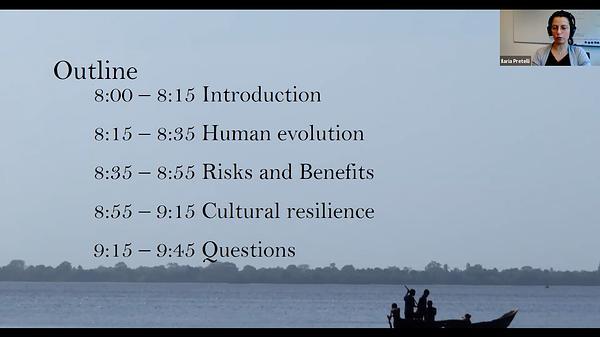Would you like to see your presentation here, made available to a global audience of researchers?
Add your own presentation or have us affordably record your next conference.
keywords:
knowledge production
parenthood/ parenting
ethnography
Over the past twenty years, anthropologists have explored the opportunities and challenges of combining family and fieldwork (Flinn, Marshall, and Armstrong 1998; Korpela, Hirvi, and Tawah 2016; Redden 2008; Scheper-Hughes 1987). These discussions reflect a turn toward critical self-reflexivity and the increasing visibility of feminist mother/scholars in and outside of anthropology. For some, children bring greater legibility and opportunities for intimacy during ethnographic research (Kelman 2019; Levey 2009). Parenting can serve as a resource for the questions that researchers ask, the interactions they observe, and analysis after leaving the field. The coronavirus pandemic has heightened these dynamics, as schooling has literally been brought home (Lowenhaupt and Theoharis 2021). Yet parenting during fieldwork can introduce other challenges, including constraints in site selection and project design; difficulty balancing family care-work with immersive research; risks posed to the health or wellbeing of family members; loneliness and isolation; feelings of inadequacy; and ethical conundrums endemic to raising children in a landscape of deeply unequal resources (Drozdzewski and Robinson 2015; Muhammad and Neuilly 2019). These challenges are mediated by race, class, nationality, gender, and sexuality. They are navigated in contexts of enduring racial violence, anti-immigrant policy, and, most recently, a global pandemic with unequally distributed effects. As anthropologists have reconsidered what constitutes fieldwork and assumptions of a self/other dichotomy (see Narayan 1993), distinctions between “home” and the “field” have collapsed, raising a new host of ethical, methodological, and ontological questions and possibilities. This has always been the case in educational research, when our children may (or may not) attend the same schools and districts in which we work. In this panel, we draw on discourses of ethnography to explore our overlapping identities as mothers, researchers, and activists. We take inspiration from the Chicana M(other)work Collective’s examination of mothering as transformative labor and call for collective care among scholars of color, their communities, and their allies (Caballero et al. 2019; see also Collins 1994). Questions that we consider include: How do our identities as mothers shape not only the research we conduct in schools and communities, but the knowledge we produce? How do our research practices, participants, and products shape our parenting? We consider how our parenting affected and was affected by our studies of gender, migration, and transnational mothering; social movements and resistance; the feminized labor of Black and Latinx mothers; racial inequity in school policy and practice; and student pregnancy and sexuality education. Together, we will speak to, and move beyond, a burgeoning literature of “how to” books on work-life balance and doing academia as a mother (e.g., Connelly and Ghodsee 2011; Grant and Evans 2008) to consider the co-production of knowledge and families (Kelman 2019, 186). We see this panel as an opportunity to further conversations about the productive entanglements of parenting and scholarship, and to consider how framing mothering as a form of knowledge production can inform discourses of ethnography. It is especially urgent amidst the pandemic and the pressing need to advocate for intersectional justice through and beyond our work.

